A very small item about the first Common Ground Country Fair ran in the Portland Press Herald on Sept. 2, 1977 under the headline “Fair to Have Extra Features.”
The “few touches” that would make the fair “a cut above the traditional” were “a roster of speakers that includes Helen and Scott Nearing, renowned homesteaders and authors.” The story is 102 words long, which suggests that editors at the Press Herald had limited expectations for the future of the Common Ground Country Fair.
Forty years later, there’s egg on our face and it’s organic. The Common Ground Country Fair was started by the Maine Organic Farmer and Gardeners Association as a fundraiser, and it succeeded, raising $22,000 that first year. It has endured, changing locations from Litchfield to Windsor and then settled in its own permanent location near MOFGA headquarters in Unity.
Although it lacks a ferris wheel and cotton candy, Common Ground is the most famous Maine fair this side of E. B. White’s “Charlotte’s Web” (which was modeled on the Blue Hill Fair). To celebrate its 40th anniversary, we asked some of Maine’s agricultural and food luminaries to share recollections of the fair over the years.
A BABY AT THE FAIR
Amanda Beal was recently named the executive director of Maine Farmland Trust, a nonprofit that protects Maine farmland and supports new farmers in their efforts to find their own land. Her greatest Common Ground Country Fair moment happened when she wasn’t even at the fair: “It was after I had been serving on the MOFGA board of directors for a few years and I realized that the first fair took place in Litchfield in 1977, which was shortly after my family had purchased the dairy farm in that town that my father and brother now run together. I was too young to remember it, but when I asked my father if we had attended, he confirmed that we did. Discovering that my connection to MOFGA ran that far back in time was definitely a special moment, and it’s something I think about each year when I return to the fair.”
WHAT’S IN AN EGG ROLL?
Matthew Strong served on MOFGA’s board for many years and for about a decade was the food coordinator for the fair. His wife, Peggy, has also been a key player at the fair, coordinating the craft area. When he and his brother were younger, they’d gone to the Blue Hill Fair with their mother and watched the vendor at the onion ring booth. It seemed like such a simple way to make money. In 1977, they were casting around for a way to do just that, and they knew how to make egg rolls. They hit a few fairs that summer before landing at the Common Ground Country Fair in Litchfield: “We happened to find the deep fryer at some yard sale. It was no great MBA business plan. We were only one of five vendors that first year. On Saturday or Sunday, we started running out of vegetables and people were taking the vegetables out of the exhibition hall and bringing them to us. We were chopping up whatever we could get, cabbage, onions, carrots. We managed to make it until the end.”
The Strongs kept frying egg rolls (and rice) until 1997, when two other business ventures (including his scrap metal business) started taking too much of their time. But this year they’ll be back. Or rather, Peggy will. She will be making egg rolls to raise money for her church, the Unitarian Universalist Church in Ellsworth.
“We were talking about fundraisers and my minister, who is only in her 40s, remembered the egg rolls from when she was a kid,” she said. “Everyone kind of stares at me. I’m going, oh, no. I’m 72!”
Her desire to help the church won out over her desire to rest on her senior citizen laurels. Matthew Strong called up the friend they’d sold the stand to 20 years ago. He still had it, albeit it mothballed.
“We went up to Millinocket and got everything and have been cleaning and repairing it, so it has been resurrected,” he said.
The price of an egg roll in 1977 was $1. When they quit in 1997 it was $1.75. This year they’ll be $4. It’s not cheap to send whole wheat Maine-grown organic flour down to Boston to be turned into wrappers at a Chinese noodle factory. Everything else, including duck sauce with local apples, will be made by the Strongs.
BREAKFAST WITH WENDELL BERRY
Bridgewater is a long way from Unity, and potatoes get harvested in September, so farmer and anti-GMO activist Jim Gerritsen doesn’t make it to the fair every year. If it’s raining in Aroostook County but not in Unity, that’s ideal; he can put the chores aside for a day and make the drive. One of his most memorable fairs was in 1978, when author Wendell Berry was the keynote speaker. There was a special breakfast with Berry, just for farmers.
“This was back when I was still a bachelor and had a cow that I had to milk,” Gerritsen said. “Everybody wanted to get into this breakfast, and MOFGA decided to let in two people from every county. They gave us four though because Aroostook County was so big. I got up at 2 a.m, milked the cow, met my friend in Houlton at 3 a.m., drove to Litchfield, had a nice breakfast with all this good Maine food, and then Wendell Berry started talking to us for about 45 minutes.
“Wendell Berry in a small setting with a roomful of farmers is something that I have never seen repeated again. I think he was really energized. It was one of the great opportunities in my life and it was all because of MOFGA,” Gerritsen said. “I think everybody in that room, probably most of us, had read ‘The Unsettling of America’ and we recognized that this guy was prophetic… I would say it was a beautiful wedding of common interests.”
WHEN IT FELT LIKE HOME
Roberta Bailey’s first memory of the Common Ground Fair is a quiet one.
“But it is very vivid for me – in Litchfield,” said the Vassalboro farmer and longtime Fedco Seed grower. “My partner, my kids’ dad, and I had just parked and we were walking toward the fairgrounds. And we both had carrots that still had the tops on them and it felt like this statement of yes, we are a part of this. That is my first memory. That was 37 years ago.”
In the mid-1980s Glen Brand, director of Sierra Club Maine, started visiting his wife’s family at their camp near Moosehead Lake. The fair was one of those temptations tugging at summer-only visitors.
“Sadly, we’d have to close camp before Labor Day, and our sorrow leaving Maine each year was made worse when we saw the lovely Common Ground posters. So when we moved to Maine in 2004, one of our must-do’s was going to Common Ground the following fall, and we’ve been there nearly every year since. My most vivid memories of the fair are a collection of beautiful images: my two young children running free, the cornucopia of apple varieties, the amazing shepherd dogs at work, the small animals, the food, and most of all the people celebrating Maine’s joyful harvest.”
HOMESTEADING POLITICS
Beedy Parker, a longtime MOFGA member, remembers when anti-abortion protesters showed up with posters of bloody fetuses. Fair organizers debated whether it was time to get rid of the fair’s social action area, to take the politics out of the fair entirely.
“We got together and had a meeting and said, or some of us who are social action junkies said, ‘We can’t let this happen, and made a big fuss,’ ” Parker said.
“The Children’s Parade came out of it, through me… (The social and political action area) is a really important piece of changing how we live. I tried to get people to start a parade based on Bread and Puppets, but then (instead) we ran the first parade for children.
“The kids dressed up as vegetables,” said Parker, who started the parade in 1990 and whose daughter runs it today. “They always carry the banner made in that first year, which says: ‘We all belong in the garden.’ ”
NO COTTON CANDY
In 2003, Andrew Mefferd was either going to be a journalist or maybe a farmer. Now the Virginia native is both, helping his wife run their farm in Cornville when he’s not busy being editor and publisher of Growing for Market magazine.
“A friend of mine was like, ‘You’ve got to go up to Maine; they have got this organic fair thing going on.’ I just put my tent in the car and drove up here. I knew that you could get a camping spot if you volunteered.”
He helped out in the kitchen, which meant good food for free, too.
“I was like, this is the way fairs should be. Cotton candy fairs are cool too, in their own way, but this was…” Just as his friend had promised, awesome. “I remembered Maine for that,” he said. “Any place that could produce that had to be a pretty great place.”
WHEN THE WEATHER WAS FRIGHTFUL
Eric Rector, cheesemaker at Monroe Cheese Studio, president of the Maine Cheese Guild and a longtime MOFGA member (he was on the board from 1998 to 2008), had only had been to the Common Ground Country Fair three times before leaving for the 1994 fair on a “rainy and blowing” Saturday. The weather was lousy enough that his wife, Alison, opted to stay home next to the woodstove, and he was alone. It was what came to be called the Turkey Fair (that’s what the poster and T-shirts featured).
“When I arrived at the Windsor Fairgrounds, parking was a breeze, but as soon as I bought my ticket and entered the fairgrounds I could see why. The fairgrounds were flooded, and there were wooden planks everywhere skipping over the worst of the collected and running water, but there was no way to keep your shoes (ideally boots!) out of the water and the mud. The fairgrounds were almost empty as fairgoers hopped from tent to tent.
“There really was nothing to do but pick a tent and listen to the scheduled talk, then leave that talk to find another and another and another. Instead of leaving early I returned home late that day with my head bursting with ideas to tell Alison about from all of the information I had been exposed to throughout the day.
“Ever since then it’s been the activity inside the tents and the halls that have meant the most to me and represented what the fair really is: a place to demonstrate and share new ideas for sustainable living,” he said. “All the other things that go on are just gift wrapping (beautiful gift wrap!) to the true gift of the fair inside those tents and talks.”
Walt Whitcomb, Maine commissioner of agriculture, notes that there are 27 agricultural fairs in Maine, and Common Ground is not the biggest (or best) of them. But he does admit that MOFGA’s fair is unique in its educational component and in adhering to tradition.
“We’ve emphasized to other fairs that you have to regain that component, which is the reason fairs were started 100 years ago,” he said. “Other fairs, I think they have reacted to what they perceive as a consumer interest. You won’t see the extent of lectures at other fairs.”
HURRICANE HUGO 1989
“There was literally a foot of water in our booth that morning after Hugo,” said Bailey, the Vassalboro farmer and seed grower. “My son came with a fishing pole, and he was pretending to fish with a bobble in the puddles. We broke open all the hay bales that had been part of the vegetable display and just laid them out on the floor so that people could walk into the booth. We gave away all the Fedco seed because it was all wet.”
Jean English, editor of the Maine Organic Farmer & Gardener, remembers the hurricane came through Maine on Friday night, into Saturday morning, so the fair opened late.
“A lot of people assumed it wouldn’t open at all,” she said. “But it opened between 10 or 11, and that is because so many people pitched in and pumped water. I think there were 500 volunteers.”
BUMPER TO BUMPER TO BUMPER
Cheesemaker Eric Rector joined the MOFGA Board in 1998, the first year the Fair was held in Unity.
“It was a sprint to the finish, right through Thursday night until the gates opened at 9 a.m. on that Friday morning. So many people went above and beyond the call to turn that potato field into a fairground that could possibly host 50,000 or 60,000 people over a weekend, and the results are astounding.
“As great as the fairgrounds looked that weekend, the traffic backups from the lack of parking experience were the most impressive thing about that fair. Every year is a traffic challenge for every popular fair, but that year so many people wanted to see the new Unity site at the same time that MOFGA and the Waldo County sheriffs were still figuring out traffic flow. The fair (rightly so) got a black eye for traffic issues that weekend, and that kept many people away for the next few years, even though the major issues were largely solved over the next few fairs.”
Whitcomb, the agriculture commission, wasn’t all that pleased when the fair moved to Windsor in 1981, not that far from where he lives on his family farm near Belfast.
“It was really disruptive,” he said. “I don’t think anyone was prepared, including obviously the fair. You couldn’t move the school buses.
“I’m part of the agricultural community. I used to buy my feed from some of the farms near there. And the trucks couldn’t move,” he said.
“I can’t say I have been to every one since I have been commissioner, but I go to most. I go before the crowds get there so I can talk to the farmers while they are setting up. Those are the people I want to talk to. It is a good time to be at a fair. They are a little more comfortable. I will buy some milk from Tide Mill Farm. I always buy things at any fair, that’s my contribution. Because, of course, the farmers are trying to make some money.”
Congresswoman Chellie Pingree, famously MOFGA’s first ever official farm apprentice and the one who started the program, remembers when the fair was nothing more “a tiny gathering.”
“No one would have ever imagined it would grow in size or popularity to what it is now,” she said. “I remember one year when I started my drive there too late and had to wait in the traffic forever. I always start very early now to avoid that and always stop to see the Coffeeman (Doug Hufnagel) for some excellent coffee and a few minutes of his political perspective.”
WHEN PEOPLE GAVE PEACE A CHANCE
In 2001, MOFGA invited agriculture and social justice activist Vandana Shiva to travel from India to the fair. Given that the fair took place two weeks after the 9/11 attacks, she would have been forgiven for cancelling. But she showed up.
“For me this is truly a journey for peace,” Shiva told the audience. “I undertook it in spite of everyone worrying – about taking a flight, coming to this country at this point of history. But that’s precisely why I got onto the flight, because if you give up hope, what chance is there for peace? But it’s also my tribute to all of you who built this amazing movement here out of a peace movement. After all, those of you who came to Maine, built the organic movement, did it as an extension of fighting in a peaceful way against a war mentality.”
Jean English, the Maine Organic Farmer & Gardener editor, remembers her visit.
“She really brought us together,” she said. “That was a powerful year.
THERE FOR THE DOGS
The Common Ground Country Fair is very Maine-centric. There are even rules about what proportion of the food has to be from the state. But one New Hampshire farmer, David Kennard, has been welcomed for either 28 or 29 years; he can’t remember precisely how long. That’s because he brings his sheepdogs from Harrisville, New Hampshire, for demonstrations. He and his son Colin, now 34, always devote one part of the demonstration to letting fairgoers have a hand at trying to herd the ducks, sheep and goats.
“Over the years consistently, the people who have done the best job are the senior citizens,” he said. “What they do is use their intelligence. I had one little old lady come in, in these mini high heels and an umbrella. She had heels and a skirt, and was probably 60-something. She would take her umbrella and swing it at the sheep. I warn the young kids, do not chase the sheep full speed; they are not patient. But the older people go slow and methodical. I tell everyone, be aware of the pressure point. That’s the point at which an animal will turn and defend itself. You have to respect that. I think that they just understand.
“Common Ground is totally my most favorite fair. It is just the best fair in the world. There is no midway. There is no junk food. It is all about education, it is about really nice people who want to recycle and eat organic things.”
CHICKEN FEET?
Chellie Pingree remembers attending in 2012 with Kathleen Merrigan, then deputy secretary of the U.S. Department of Agriculture.
“She had a wonderful time. I think it was the same year that the folks at Tide Mill farm were giving out chicken feet at their farmstand. If you made a purchase at the stand, you could redeem it at their food booth for a treat. I carried the foot around through several conversations on the way over – that’s a uniquely Maine ‘coupon.’ ”
ASKING, HAS IT GOTTEN TOO BIG?
Roberta Bailey gathers with friends for lunch each day of the fair. Last year one of them raised the question, is the fair too much?
“I really still am thinking about that question, because how do you take it apart? How do you undo that? It has grown to be bigger and more commercial, but within it there is this strong, strong thread of education and people getting together and learning and sharing. And the commercial part of it, well, that’s kind of the skeletal structure that supports the education. I am not sure it could be pulled off without it anymore.
“For me what the fair is is a place where I see other farmers and people that I only see once a year. It is a gathering place… You can’t walk 10 feet without seeing someone you know. It is a meeting and a sharing of how things went that year… It is really talking about the science of life, how the drought affected you, how some hailstorm affected you, what went well and didn’t go well. There is a lot of brainstorming and speculating. For me, that is the core of what goes on at Common Ground Fair… people walking around, sharing bits of their lives. And from so many angles.”
Copy the Story LinkSend questions/comments to the editors.


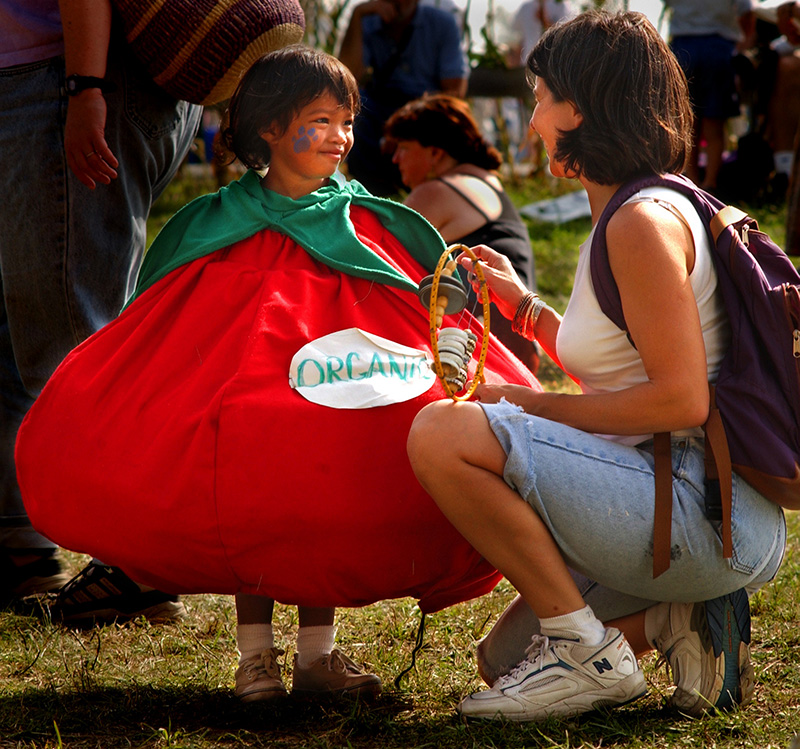
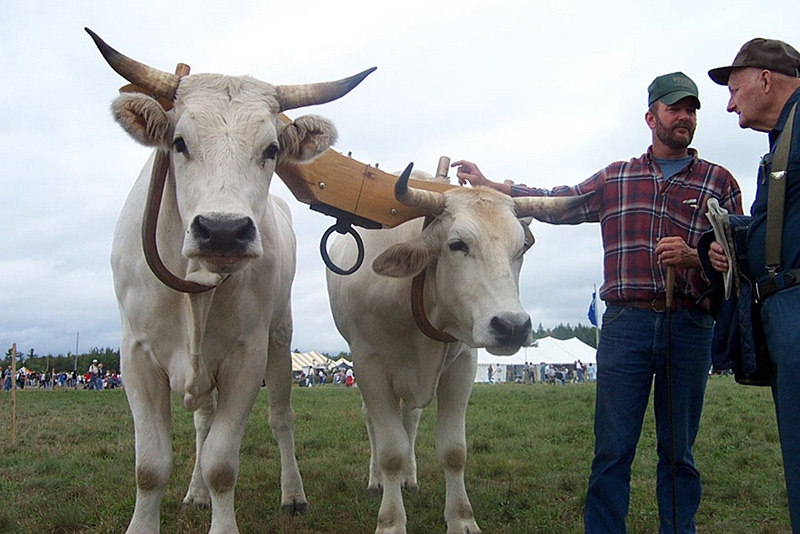
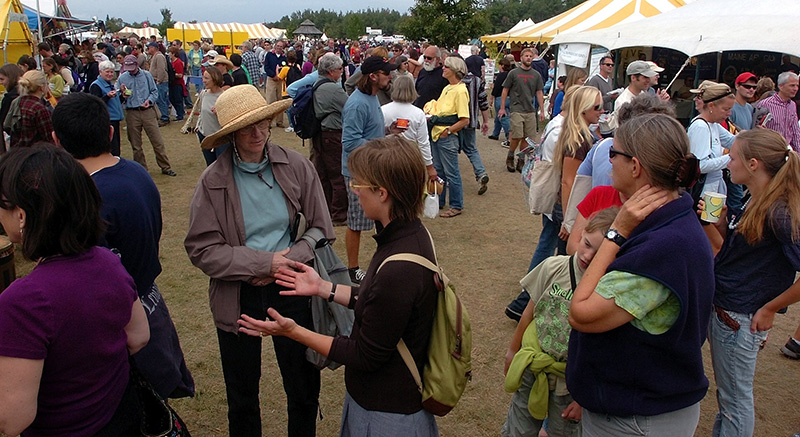
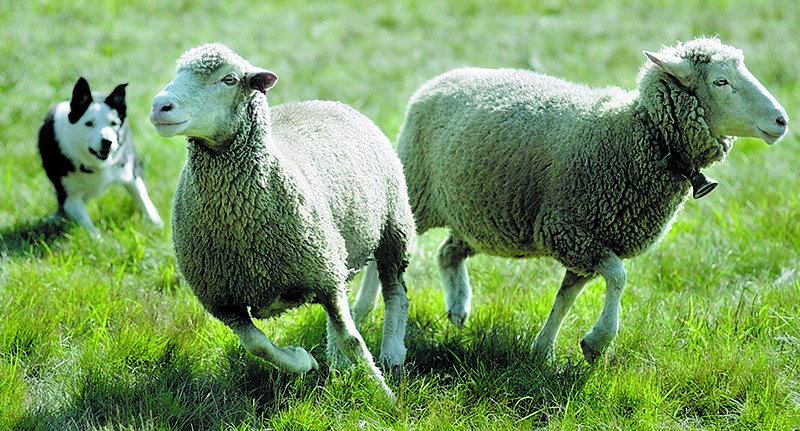
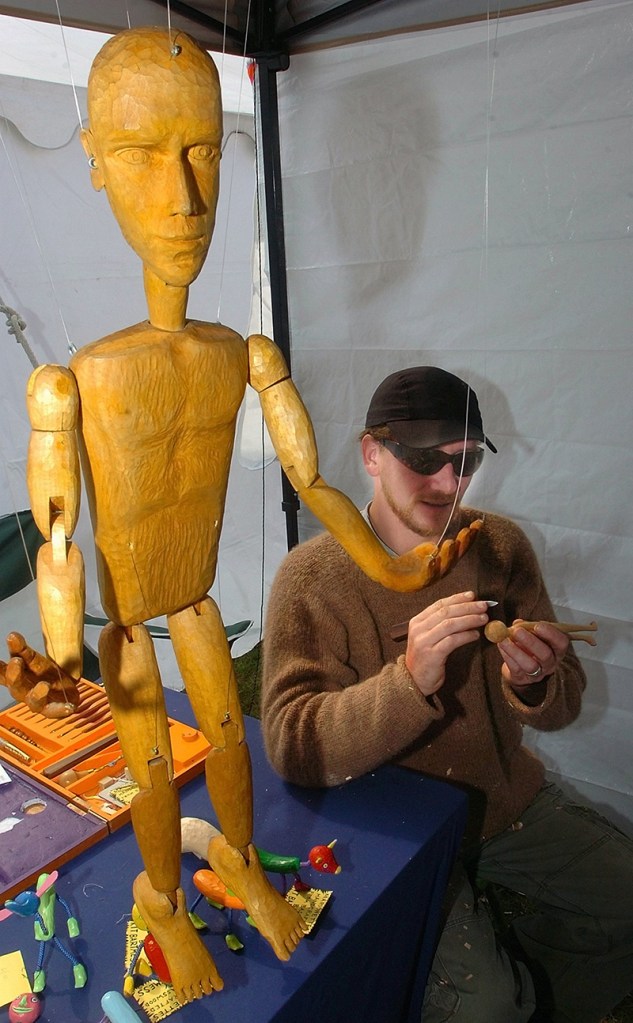
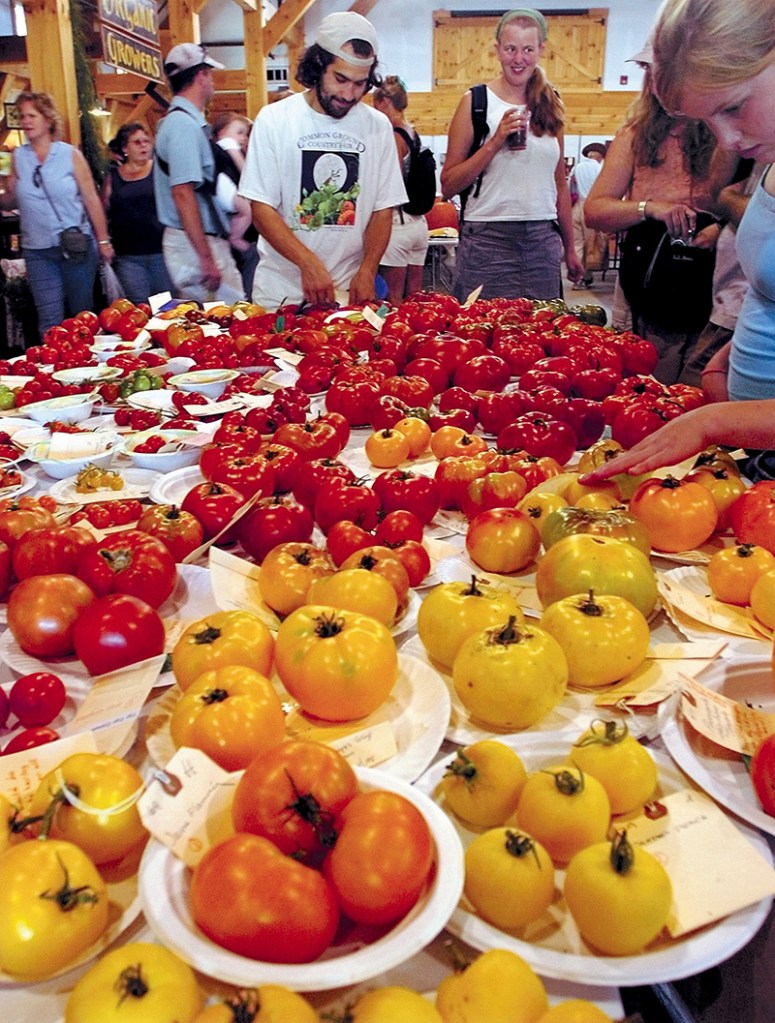
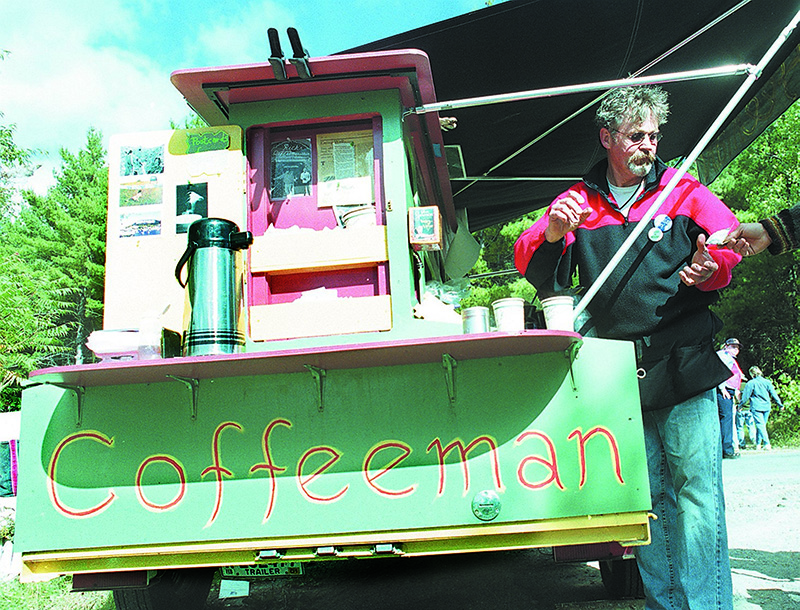
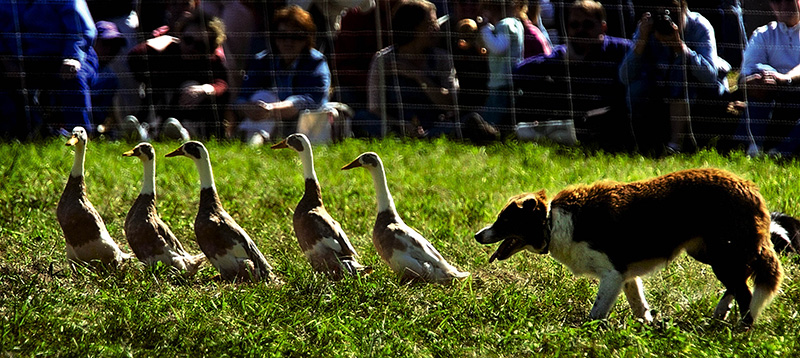
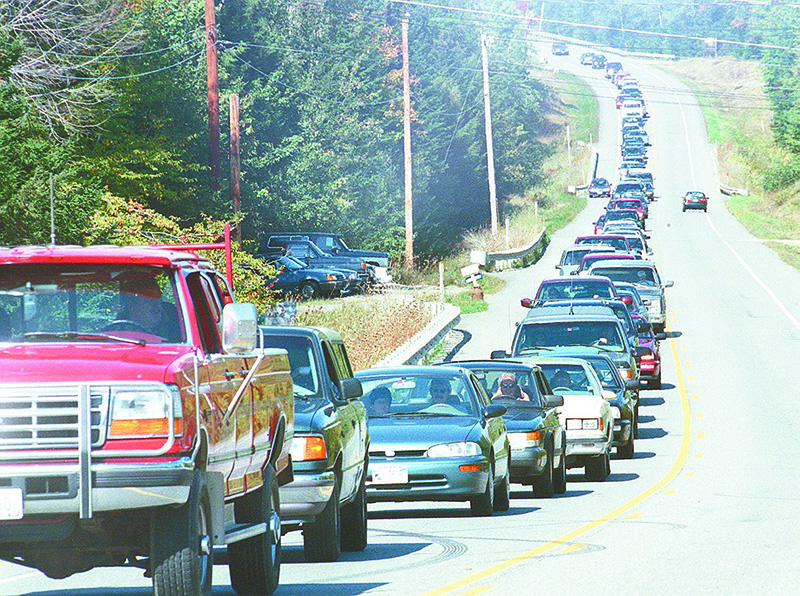
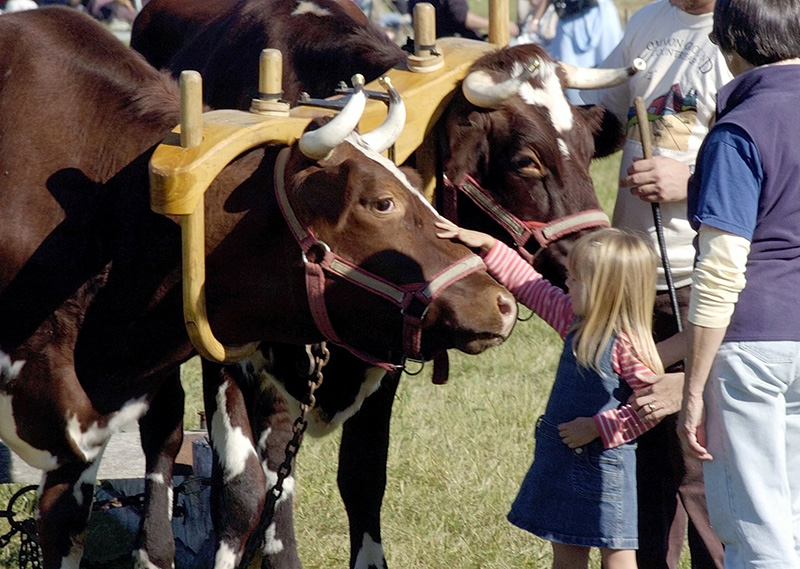
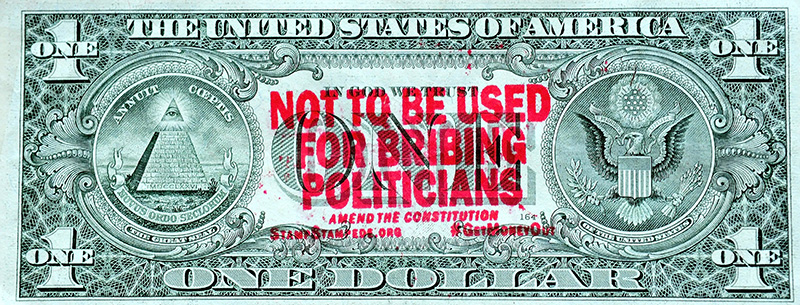
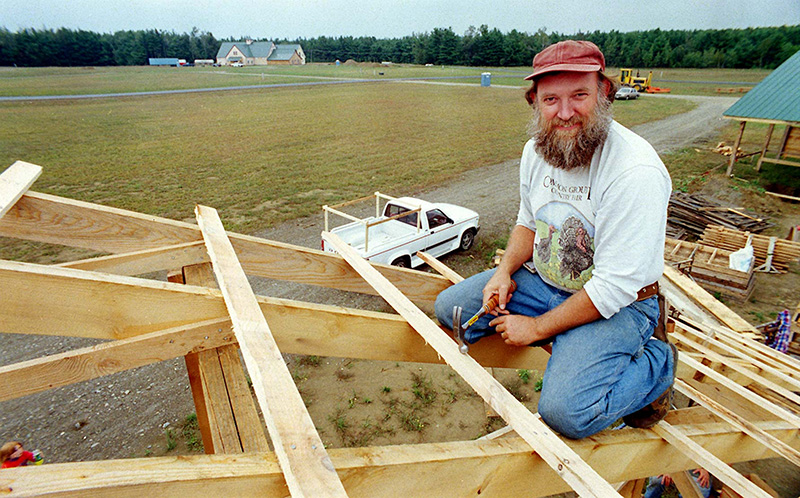
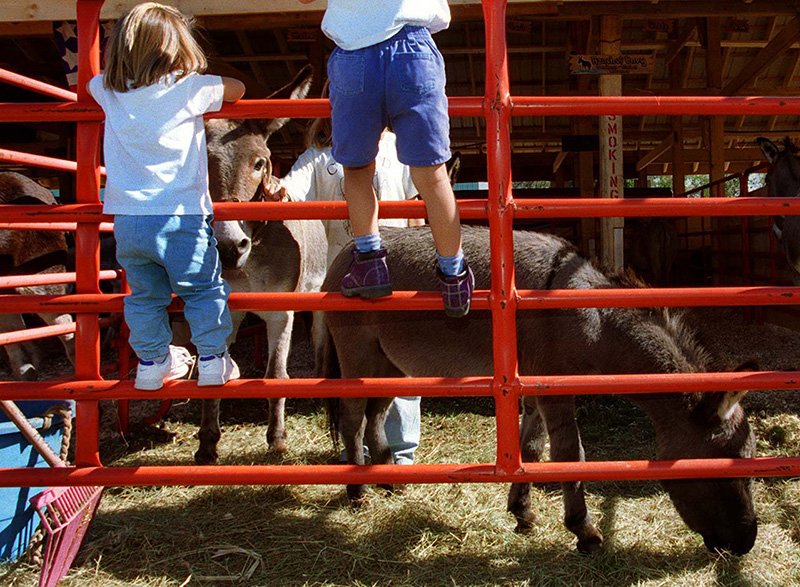
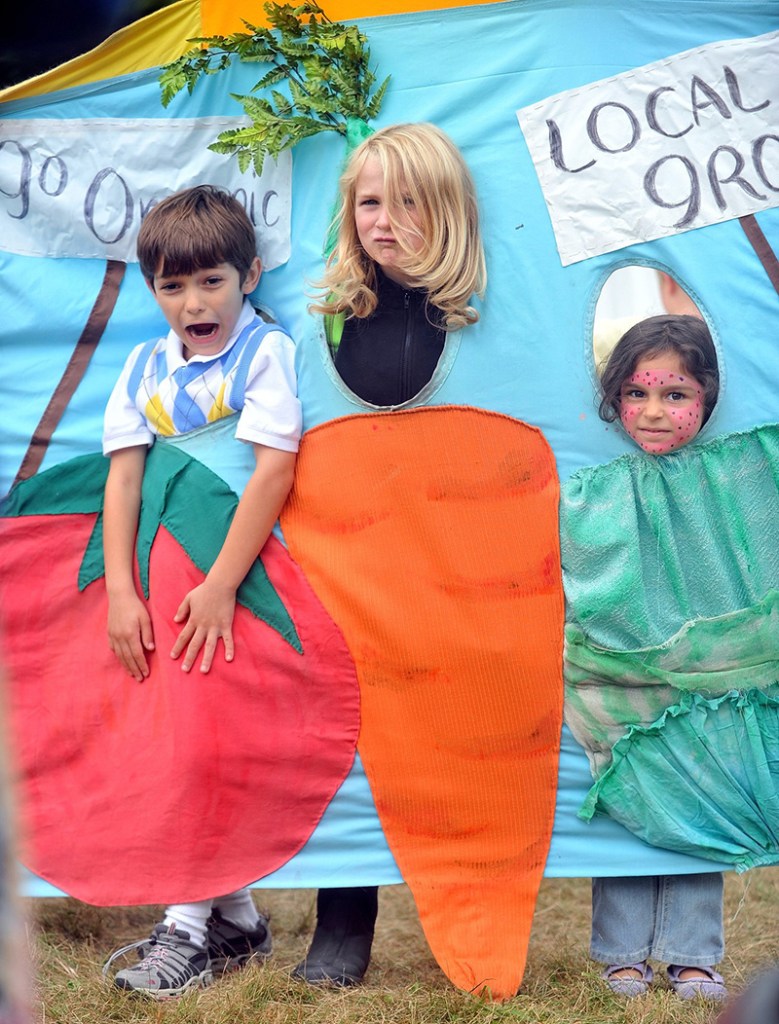
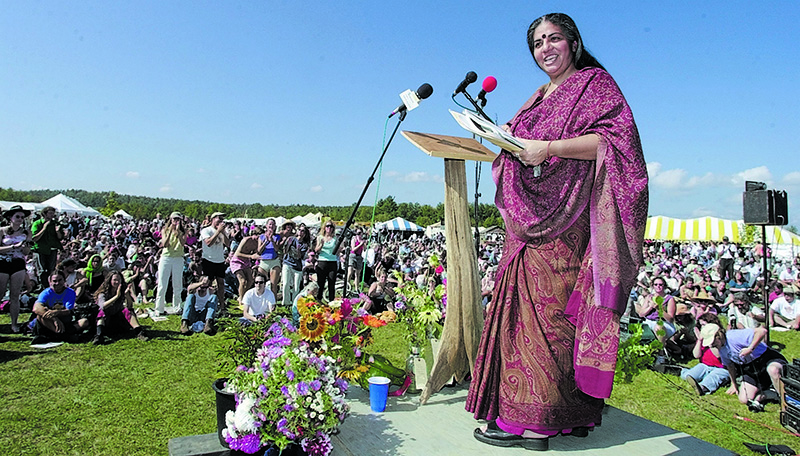
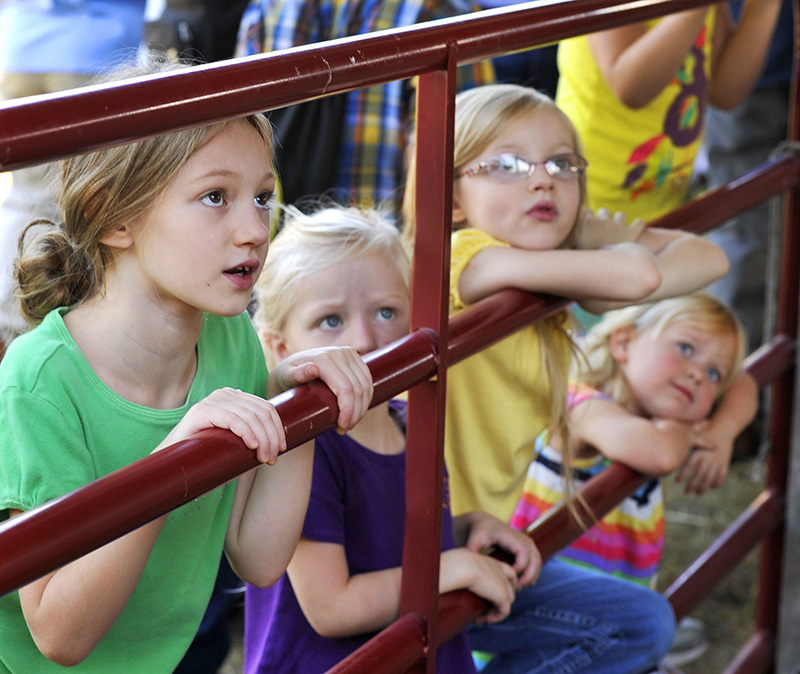
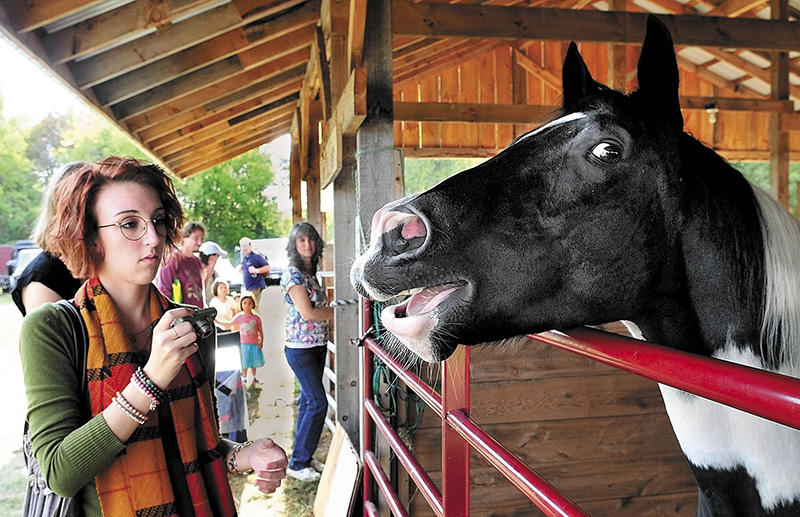
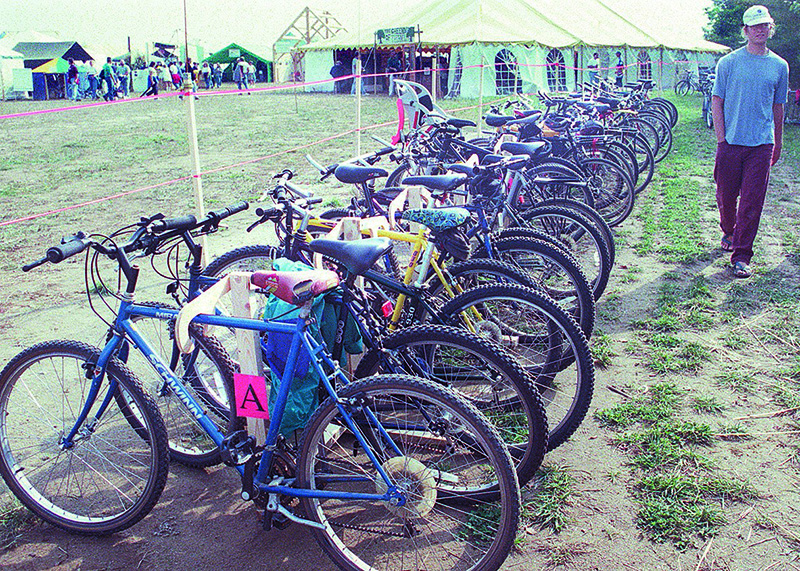
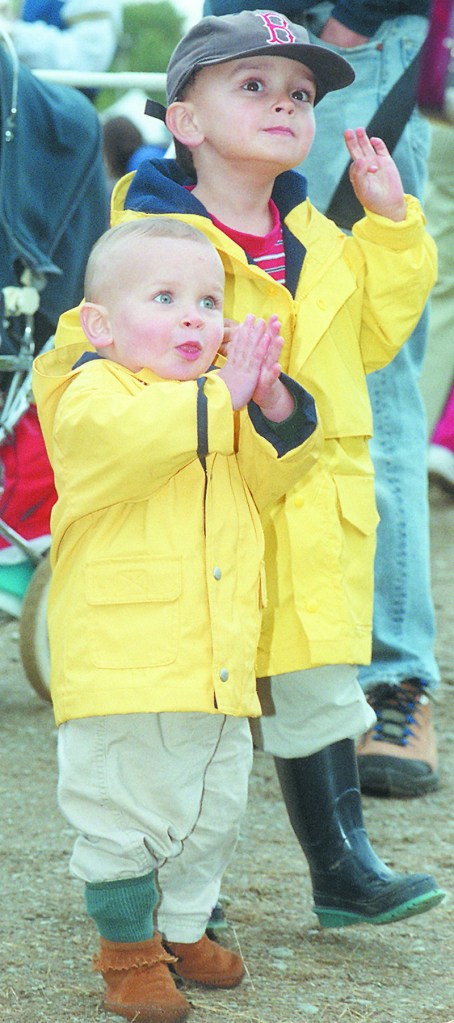
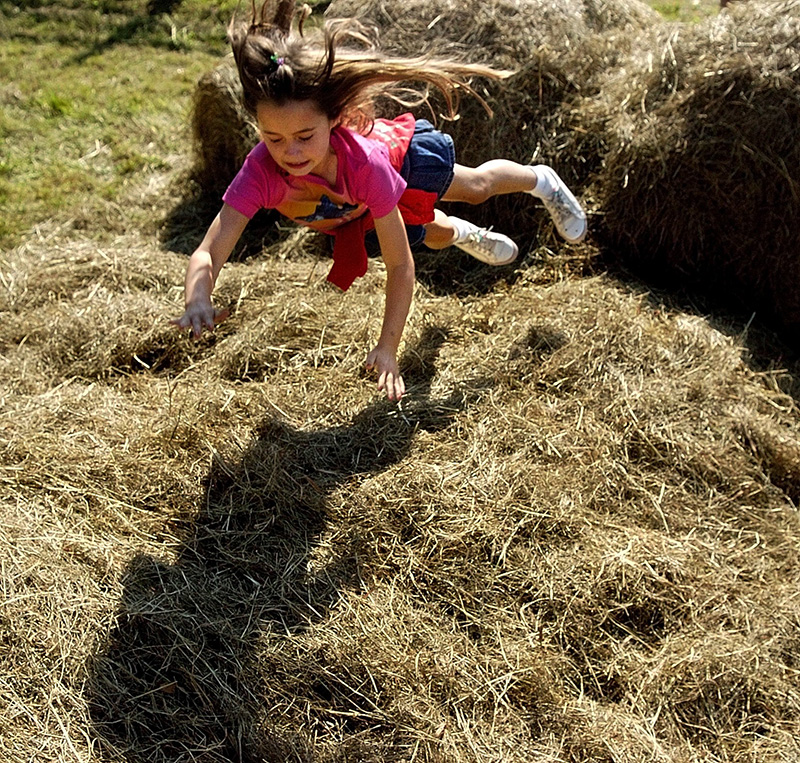

Success. Please wait for the page to reload. If the page does not reload within 5 seconds, please refresh the page.
Enter your email and password to access comments.
Hi, to comment on stories you must . This profile is in addition to your subscription and website login.
Already have a commenting profile? .
Invalid username/password.
Please check your email to confirm and complete your registration.
Only subscribers are eligible to post comments. Please subscribe or login first for digital access. Here’s why.
Use the form below to reset your password. When you've submitted your account email, we will send an email with a reset code.